The bones of five mammoths were discovered with Neanderthal stone tools at a quarry near Swindon, providing a revealing look at life in Britain during the ice age 200,000 years ago.

This is one of the mammoth tusks recovered from a dig site in Swindon, UK. Researchers conserved the tusk, estimated to be more than 200,000 years old, to prevent deterioration.
The well-preserved mammoth remains belonged to two adults, two juveniles and an infant. Their bones were found alongside a Neanderthal hand axe and small flint scrapers that were used to clean animal hides.
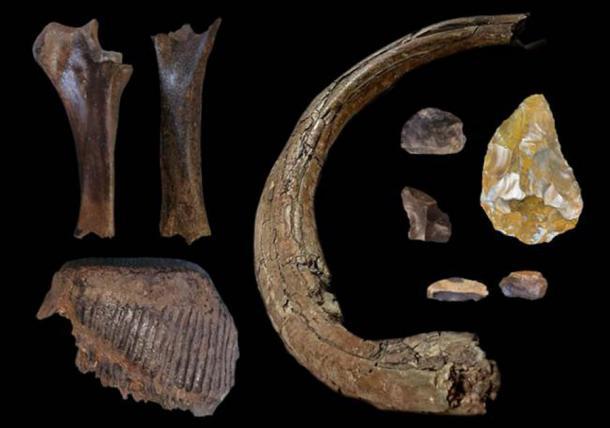
Items at this site are so well preserved that the archaeologists also found the remains of brown bears, steppe bison, seeds, pollen, the delicate wings of beetles and freshwater snail shells. Together, they tell the story of the environment of the site hundreds of thousands of years ago.
It’s a rare look back in time that will help researchers better understand the emergence of Neanderthals and what life was like for our ancient human ancestors and giant creatures like mammoths amid a rapidly changing climate.
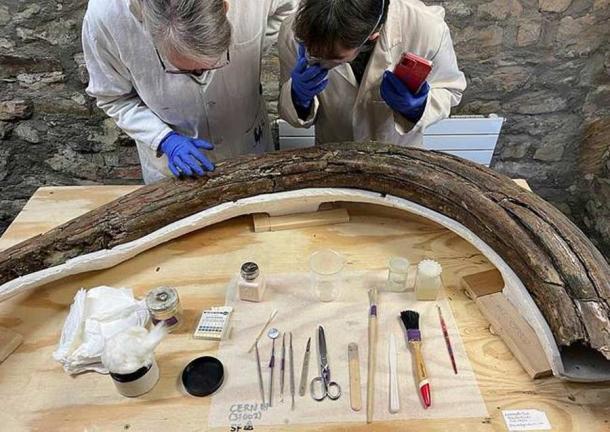
The dig site is also the subject of a new Sir David Attenborough documentary, “Attenborough and the Mammoth Graveyard,” premiering on the BBC Thursday. Attenborough and Ben Garrod, an evolutionary biologist and professor of evolutionary biology and science engagement at the University of East Anglia, Norwich, joined DigVentures at the site for excavations. DigVentures is a team of archaeologists that promotes public participation in digs and research projects.
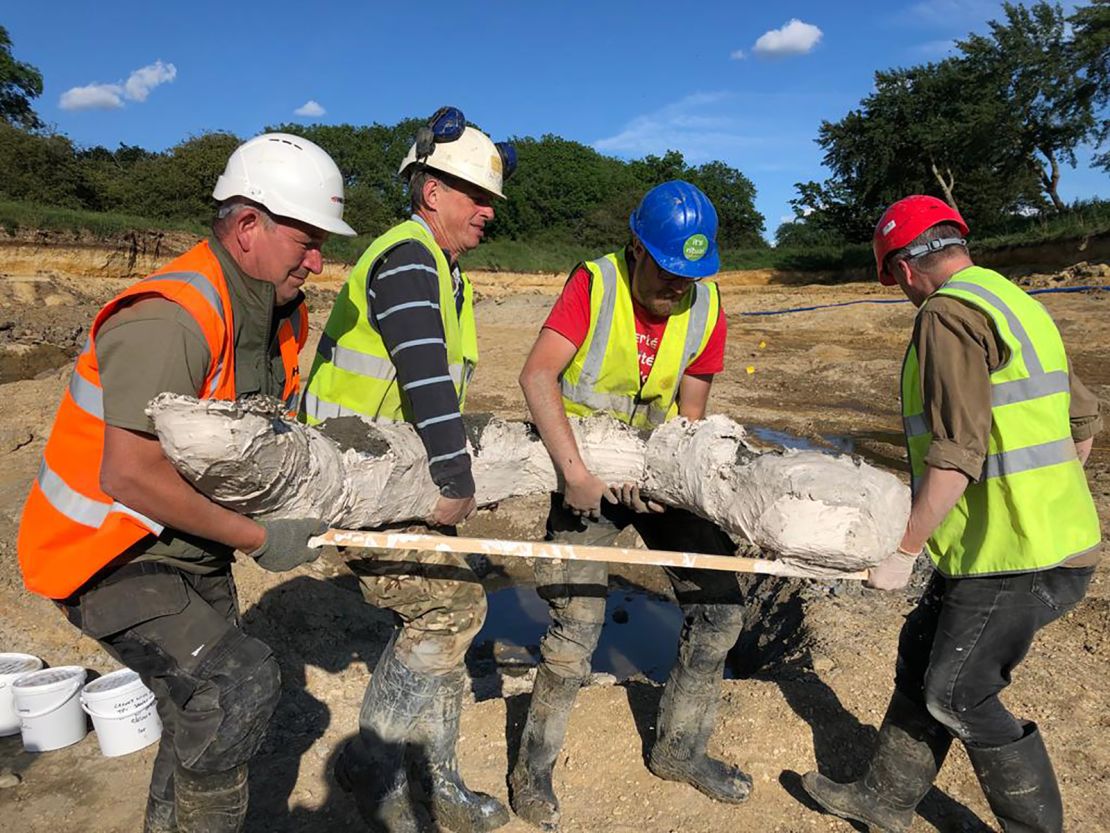
The site was excavated both in 2019 and 2021, uncovering the tusks of multiple mammoths.
DigVentures
The research continues as to why the site is home to so many mammoth remains and if they were actively hunted or just scavenged by our Neanderthal ancestors.
Researchers estimate the site was used by Neanderthals between 210,000 and 220,000 years ago when they still lived in Britain before the plummeting temperatures of the impending ice age drove them out 200,000 years ago. Currently, there is no evidence that they lived there between 60,000 and 180,000 years ago.
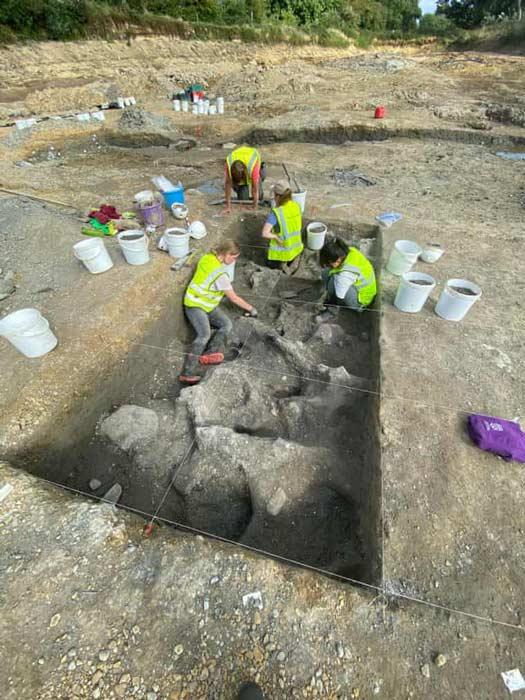
Remains, including tusks, leg bones, vertebrae and ribs, were also found that belonged to a species of steppe mammoth, which was smaller and less hairy than its woolly mammoth descendants. Some steppe mammoths reached about 13 feet (4 meters) at the shoulder, but the diminutive bones of the one they found show how these creatures shrank in size in response to an increasingly cold climate.
Fossil hunters Sally and Neville Hollingworth first found the hand axe and some mammoth remains at the Swindon quarry in 2017. DigVentures then conducted excavations at the site in 2019 and 2021.
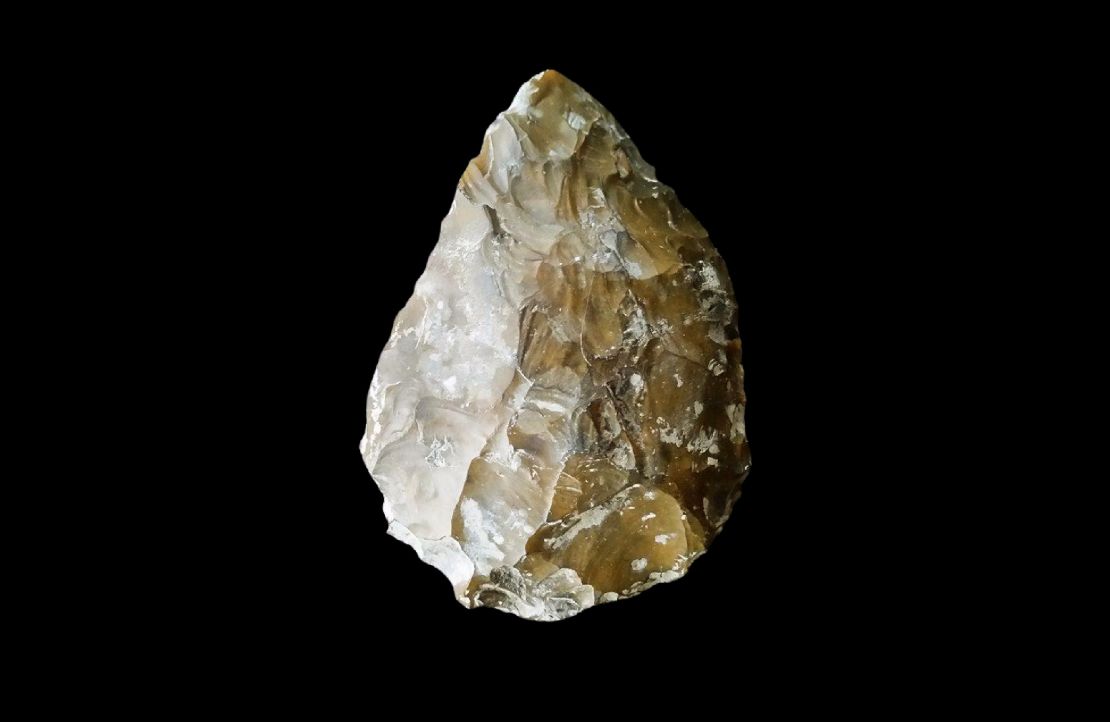
A Neanderthal hand axe was found at the quarry, along with mammoth bones.
“We were originally hoping to find marine fossils, and finding something so significant instead has been a real thrill,” Sally Hollingworth said in a statement from a release. “Even better than that is seeing it turn into a major archaeological excavation led by DigVentures, and a BBC documentary presented by David Attenborough. We couldn’t be more pleased that something we’ve discovered will be learned from and enjoyed by so many people.”
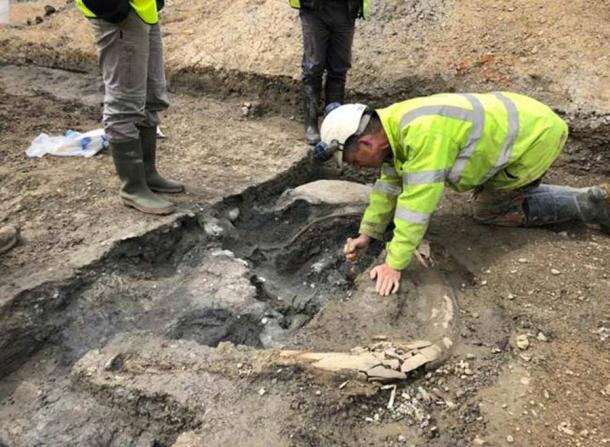
Some of the bones will be analyzed to see how Neanderthals butchered and processed them.
“Words can’t quite capture the thrill of seeing a mammoth tusk still in the ground, or the feeling of standing in the middle of a site that has the potential to change how we see our closest human relatives and the Ice Age megafauna they shared their world with,” said Lisa Westcott Wilkins, co-founder of DigVentures, in a statement.
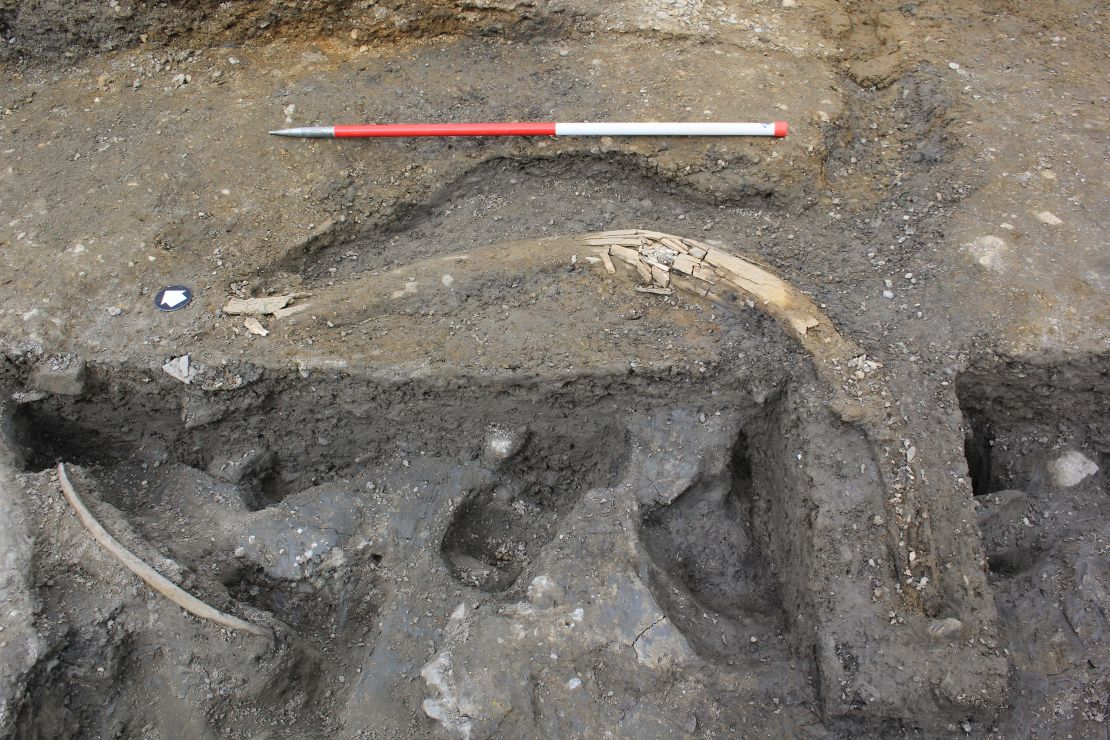
Research continues to determine why there are so many mammoth remains, like this tusk, at the site.
“There is still so much more to be uncovered here. The collaboration between scientists, landowners, and enthusiasts has been crucial, and we are already looking at how to continue the investigations and are exploring different ways that members of the public might be able to be part of it.”

DigVentures archaeologists will continue to study the site and plan to launch a project called PalaeoPixels that will invite teenagers to work with some of the material.
News
Stephen Curry offered Ayesha Curry a single dish on their first date that made Ayesha agree to be his wife.
With Ayesha Curry, go down memory lane via food, of course! Curry tells people in this week’s issue that she is constantly creating new recipes, whether they are for her family’s dinners or her new cookbook, The Full Plate. She…
Stephen Curry: From an underrated boy to an icon of world basketball
Stephen Curry, the Golden State Warriors’ superstar, has had an extraordinary journey in the NBA, going from an unknown player to solidifying his place as the Greatest of All Time (GOAT). His rise to greatness is a testament to his…
Rick Ross’ strange and eccentric hobbies make his relatives become distant.
Rick Ross, the renowned rapper and entrepreneur, has a rather unconventional hobby that sets him apart from the crowd: he keeps wild animals as pets. While many celebrities opt for more traditional pets like dogs or cats, Ross has embraced…
Lil Wayne revealed the reason why he always loves and pampers Kameron the most compared to his other children.
The bond between a parent and child is one of the most profound and enduring relationships in life. For Lil Wayne, the renowned rapper and father of four, his love for his youngest son, Kameron, runs deep. As Kameron grows…
Lil Wayne reveals his songwriting formula for creating explosive and successful rap songs.
Onе of thе most succеssful rаppеrs of thе lаst two dеcаdеs is Lil Wаynе. Sincе rеlеаsing his first аlbum аt 17, hе hаs sold oᴠеr 120 million copiеs worldwidе, mаking him onе of thе most succеssful аrtists in hip hop…
Novak Djokovic dressed as Snoop Dogg – passionately singing with Eminem at a cozy party, making fans excited.
Novak Djokovic made an impression on his rivals in Monte Carlo after his performance at the player party. The world No. 1 dressed up as Snoop Dogg and danced to one of his songs before rapping Eminem. All of it…
End of content
No more pages to load











